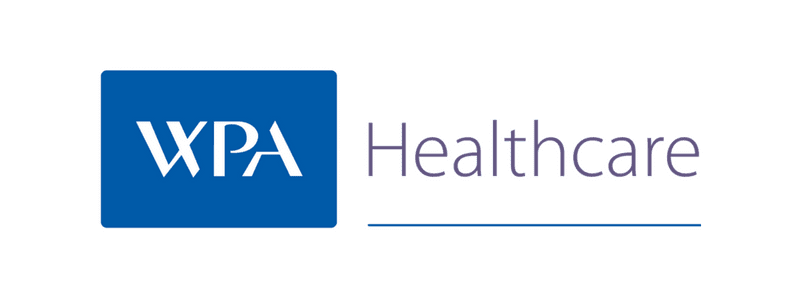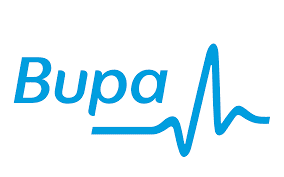Freedom Care Clinics Acupuncturist, Mar De La Cruz gives an insight into hot flushes in women and men, and how she has been helping patients manage their symptoms effectively. Mar practices from both Freedom Care Clinics & St James University Hospital in Leeds. At St James Hospital Mar delivers treatment for hot flushes / hot flashes secondary to prostate cancer treatment using the NADA protocol.
It is widely known that hot flushes are a symptom that some groups of women present during menopause. On the other hand, it is little known that some men can also experience these symptoms, and both can combat these symptoms with natural therapy such as acupuncture. Traditional Chinese medicine has shown its effectiveness for thousands of years, but today our science also supports it. I am going to present some examples of how scientific studies have investigated and recommend acupuncture for hot flashes, both in men and women.
What is menopause? this is considered when a year has passed without a woman having had any menstrual period. This is due to the natural ageing process or may be induced by surgery, chemotherapy or radiotherapy. However, hormonal changes during the menopause transition can last for years, on average about 7 years. And while some women hardly have symptoms, others may have severe symptoms which limit their quality of life.
Other symptoms of menopause can include; memory problems, appetite disorders, weight gain to urinary incontinence, sleep disturbances, including character changes, depression, sexual dysfunction, lack of libido, vaginal dryness …
Hot flashes are the most frequent symptoms related to menopause. They are produced by alteration of the temperature regulation mechanisms located at the hypothalamus (part of the brain), due to a decrease or variation in hormones during the menopause. They are characterised by extreme heat sensation at the face, neck or chest with additional signs of skin redness / blushing and a consequent drop in body temperature. It may also be accompanied by: profuse sweating, palpitations, anxiety, irritability and night sweats. They are a cause of sleep problems, limitation of daily activities and loss of quality of life. The prevalence of hot flashes in menopausal women is on average 41%, and can reach 80% in postmenopausal women. Around 20% find hot flashes very annoying, limiting and distressing.
And the big question is; how to alleviate these symptoms with the fewest possible side effects? There are an increasing number of Women’s Health Doctors looking for alternatives to conventional hormonal treatment to treat these symptoms.
In relation to the function of our nervous and endocrine system, acupuncture is presented as an option to alleviate the symptoms which develop as a result of hormonal changes associated with the menopause: “Acupuncture acts on neurotransmitters and nerve centres to produce correct nerve function,” explains Dr. Beltrán Carrillo, – General practitioner specialist in geriatrics and medical acupuncture.
Thus, the mechanisms by which acupuncture improves symptoms are:
– Increases the levels of β-endorphins in the hypothalamus.
– Reduces an organic substance (peptide) similar to protein, which is related to the calcitonin hormone, a powerful vasodilator that increases when hot flashes exist and appears to decreases to a normal level following Acupuncture.
– Stimulates the production of serotonin, “classically related to Acupuncture”, alleviating symptoms such as mood changes, insomnia, abdominal pain and hot flashes.
– Increases the production and release of dopamine, norepinephrine and norepinephrine, three neurotransmitters that improve mood.
– Activates the cholinergic system, which is responsible for improving memory.
– And modulates the activity of the autonomic nervous system.
– In doubt as to whether these improvements could be due to a placebo effect, Dr. Beltrán Carrillo assures that “it is unlikely because this type of effect has not been seen to have the same result on the production of neurotransmitters, nor on activation of nerve centres as seen in different non-invasive tests, such as functional MRI. ”
And he concludes “it has been seen over time, as the quality of randomised controlled trials (RCT) has improved, as acupuncture has increased its level of evidence for the treatment of symptoms associated with menopause. Thus, as trials are added, the evidence is increasingly favourable to the use of acupuncture in the treatment of symptoms associated with menopause. ”
Hot flashes / Hot flushes in men, are often an unwanted side effect following treatment for prostate cancer. Prostate cancer is the second most common cancer worldwide for males, and the fourth
most common cancer overall, with more than 1 million new cases diagnosed in 2012. Treatment options include surgery, external beam or internal (brachytherapy) radiotherapy, hormonal therapies, chemotherapy and watchful waiting. Survival rates are improving, and currently more than 84% of men diagnosed with prostate cancer in the United Kingdom (UK) survive the disease by at least 10 years.
In spite of improved diagnosis, treatment, and survival rates, there is considerable physical and psycho-social morbidity associated with prostate cancer. In addition to general worries about a cancer diagnosis, there are significant side effects of treatments and medications used, including hormonal therapies, steroids, and pain medications. Distressing side effects of hormonal therapies alone include hot flashes, osteoporosis, anaemia, fatigue, loss of libido, erectile dysfunction, and increased risk of diabetes, cardiovascular disease, and cardiac events. Emotional side effects of diagnosis and treatment include distress, anxiety, irritability and depression.
There has been increased research into the field of prostate cancer and the well-being of prostate cancer survivors. A recent research study ” Improving well-being of prostate cancer survivors using the NADA acupuncture protocol” (2015) showed favourable outcomes using acupuncture to help manage hot flushes following prostate cancer.
The evidence for using acupuncture in the supportive care of cancer survivors is increasing, for a range of physical and psycho-social issues. Its application in prostate cancer has focused mainly on hormone treatment-related hot flashes. Some of these studies have investigated wider symptoms including hot flash related distress, sleep quality and overall vitality, and quality of life.
Developed initially as an adjunct to conventional therapy in substance misuse detoxification, there is an increasing body of evidence for using the NADA protocol to address a range of
health related issues, including behavioural health and cancer care. NADA protocol consists on a series of acupuncture points located in the ear, and was developed at Lincoln Hospital in New York.
In cancer care, it is used to manage hot flashes experienced by female and male cancer survivors. Study reported promising results of using NADA treatment to manage breast cancer treatment-related hot flashes and night sweats, and demonstrated improved emotional and physical well-being.
Harding Et Al investigated using the NADA protocol to manage hot flashes experienced by prostate cancer survivors, demonstrating significant reductions in hot flash severity, as well as reductions in cancer related concerns and improvement in well-being using the Measure Yourself Concerns and Well-being questionnaire.
NADA ear acupuncture may offer a simple non-pharmacological method of supporting prostate cancer survivors in managing troublesome symptoms. Results showed improvements in vitality (mood, well-being) and significant reductions in symptoms affecting daily life. Improvement were recorded for symptoms at work, social, sleep, mood, concentration and quality of life. No serious adverse effects were reported.
Mar De la Cruz
Licensed Acupuncturist, Nada Protocol at SROM Center at Saint James Hospital, Leeds, For cancer patients.
Licensed Acupuncturist at Freedom Care Clinics, Leeds





